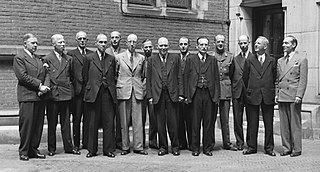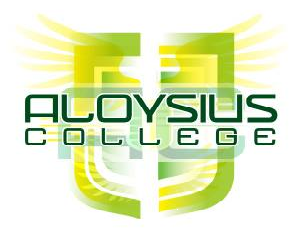The Labour Party is a social-democratic political party in the Netherlands.

The Christian Democratic Appeal is a Christian-democratic political party in the Netherlands. It was originally formed in 1977 from a confederation of the Catholic People's Party, the Anti-Revolutionary Party and the Christian Historical Union; it has participated in all but three cabinets since it became a unitary party.

The Anti-Revolutionary Party was a Protestant conservative and Christian democratic political party in the Netherlands. The party was founded in 1879 by Abraham Kuyper, a neo-Calvinist theologian and minister. In 1980 the party merged with the Catholic People's Party (KVP) and the Christian Historical Union (CHU) to form the Christian Democratic Appeal (CDA).
The Catholic People's Party was a Catholic Christian democratic political party in the Netherlands. The party was founded in 1945 as a continuation of the Roman Catholic State Party, which was a continuation of the General League of Roman Catholic Caucuses. During its entire existence, the party was in government. In 1977, a federation of parties including the Catholic People's Party, the Anti-Revolutionary Party (ARP) and the Christian Historical Union (CHU) ran together under the Christian Democratic Appeal (CDA) banner. The three participating parties formally dissolved to form the CDA in 1980.

Jan Eduard de Quay was a Dutch politician of the defunct Catholic People's Party (KVP) now the Christian Democratic Appeal (CDA) party and psychologist who served as Prime Minister of the Netherlands from 19 May 1959 until 24 July 1963.

The Christian Historical Union was a Protestant Christian democratic political party in the Netherlands. The CHU is one of the predecessors of the Christian Democratic Appeal (CDA), into which it merged in September 1980.

The Schermerhorn–Drees cabinet was the executive branch of the Dutch Government from 25 June 1945 until 3 July 1946. The cabinet was formed by the christian-democratic Roman Catholic State Party (RKSP), the social-democratic Social Democratic Workers' Party (SDAP) and the social-liberal Free-thinking Democratic League (VDB) by royal decree following the end of World War II. The cabinet was a provisional centrist grand coalition and had a substantial majority in the House of Representatives, with prominent civil engineer Willem Schermerhorn of the Free-thinking Democratic League serving as Prime Minister. Social Democratic Leader Willem Drees served as Deputy Prime Minister and Minister of Social Affairs.

JonkheerCharles Joseph Marie Ruijs de Beerenbrouck was a Dutch politician of the defunct Roman Catholic State Party (RKSP), later formed to the Catholic People's Party (KVP) now merged into the Christian Democratic Appeal (CDA). He served as Prime Minister of the Netherlands from 9 September 1918 until 4 August 1925 and from 10 August 1929 until 26 May 1933.

The Political Party of Radicals was a Christian-radical, progressive Christian and green political party in the Netherlands. The PPR played a relatively small role in Dutch politics and merged with other left-wing parties to form GreenLeft in 1991.

The First Van Agt cabinet, also called the Van Agt–Wiegel cabinet was the executive branch of the Dutch Government from 19 December 1977 until 11 September 1981. The cabinet was formed by the christian-democratic Christian Democratic Appeal (CDA) and the conservative-liberal People's Party for Freedom and Democracy (VVD) after the election of 1977. The cabinet was a centre-right coalition and had a slim majority in the House of Representatives with Christian Democratic Leader Dries van Agt serving as Prime Minister. Liberal Leader Hans Wiegel served as Deputy Prime Minister and Minister of the Interior.

The Den Uyl cabinet was the executive branch of the Dutch Government from 11 May 1973 until 19 December 1977. The cabinet was formed by the social-democratic Labour Party (PvdA), the christian-democratic Catholic People's Party (KVP) and Anti-Revolutionary Party (ARP), the progressive Political Party of Radicals (PPR) and the social-liberal Democrats 66 (D'66) after the election of 1972. The cabinet was a left-wing grand coalition and had a substantial majority in the House of Representatives with Labour Leader Joop den Uyl serving as Prime Minister. Prominent Catholic politician Dries van Agt, the Minister of Justice from the previous cabinet, served as Deputy Prime Minister until his resignation. Prominent Protestant politician Gaius de Gaay Fortman the Minister of the Interior assumed the office of Deputy Prime Minister on 8 September 1977.

The Roman Catholic State Party was a Catholic Christian democratic political party in the Netherlands. The party was founded in 1926 as a continuation of the General League of Roman Catholic Caucuses. During its entire existence, the party was in government. In 1945 the party became the Catholic People's Party (KVP).

Petrus Josephus Mattheus "Piet" Aalberse Sr. was a Dutch politician of the defunct General League of Roman Catholic Caucuses (ABRK) later the Roman Catholic State Party (RKSP) and later co-founder of the Catholic People's Party (KVP) now merged into the Christian Democratic Appeal (CDA) party and jurist. He was granted the honorary title of Minister of State on 31 December 1934.

This article gives an overview of Christian democracy in the Netherlands, which is also called confessionalism, including political Catholicism and Protestantism. It is limited to Christian democratic parties with substantial support, mainly proved by having had a representation in parliament. The sign ⇒ means a reference to another party in that scheme.
Roman/Red is the nickname for a period in Dutch politics between approximately 1945 and 1958. This period was characterized by coalitions between the Catholic and social-democratic parties in the Netherlands and Belgium. "Roman" refers to the parties with Roman Catholic affiliation, and "red" refers to the colour associated with social democrats. During the Roman/Red period, the Catholic People's Party (KVP) and the social-democratic Labour Party (PvdA) formed the core of several 'Roman/Red' cabinets, led primarily by Willem Drees.

Josephus Robertus Hendricus "Josef" van Schaik was a Dutch politician of the defunct Roman Catholic State Party (RKSP) and later co-founder of the Catholic People's Party (KVP) now merged into the Christian Democratic Appeal (CDA) party and jurist. He was granted the honorary title of Minister of State on 15 March 1951.

Charles Joseph Ignace Marie Welter was a Dutch politician and diplomat of the defunct General League of Roman Catholic Caucuses (ABRK) party later the Roman Catholic State Party (RKSP), the Catholic People's Party (KVP) and founder of Catholic National Party (KNP) before rejoining the Catholic People's Party now merged into the Christian Democratic Appeal (CDA) party and nonprofit director.

Michael Henricus Maria (Michel) van Hulten is a retired Dutch politician. As a member of the Political Party of Radicals (PPR) he was a member of the Dutch parliament and he was the undersecretary of the Minister of Transport in Joop den Uyl's cabinet.

Aloysius College, The Hague, was a secondary school in The Hague, in the Netherlands. The school was founded by the Jesuits in 1917 and expanded to include secondary school, grammar school, high school, and "gifted education." The last Jesuits left the school in the 1970s, and in 2016 the school was closed due to financial difficulties.


















